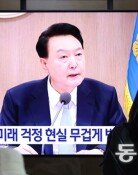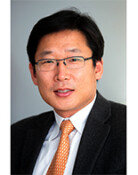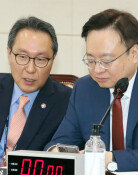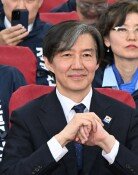Pyongyang rejects Seoul’s offer to provide rice, demands cash instead
Pyongyang rejects Seoul’s offer to provide rice, demands cash instead
Posted May. 27, 2019 08:08,
Updated May. 27, 2019 08:08
South Korea offered to North Korea in January this year that it would double the amount (than the value of cash) if it provides rice in lieu of dollars, under the condition that the Koreas resume South Koreans’ tours to Mount Kumgang and reopen the inter-Korean Kaesong Industrial Park. However, the North reportedly rejected the offer. This reveals that Pyongyang is taking more seriously a decline in North Korean leader Kim Jong Un’s coffers for governing the Stalinist country due to sanctions against the North, rather than food shortages.
According to multiple sources in the South Korean government, when North Korean leader Kim stated in his New Year’s speech that “Pyongyang can resume (South Koreans’) tours to Mount Kumgang and reopen the Kaesong Industrial park without any conditions attached,” Seoul suggested several times that it would provide daily necessities, including rice, tofu, and soybean oil as compensation, at the Inter-Korean Liaison Office in Kaesong and in Shenyang, China.
Since daily necessities for humanitarian purposes cannot be converted into use for nuclear weapons and missile development, Seoul made the offer to circumvent bans on transfer of a large amount of cash (bulk cash) among the sanctions imposed against the North. When the North rejected the offer, however, the Seoul government suggested anew “Then, Seoul will provide double the amount in rice (than the value of cash),” the North insisted that “We need cash (dollars) rather than rice.”
“In North Korea at present, shortages of state funds are more painful to Kim Jong Un than food shortages,” said an informed source on North Korea affairs in Seoul. “Some say that as sanctions against the North have been protracted, about 70 percent of state funds have all but disappeared.”
The Seoul government offered to “pay with commodities” because Pyongyang responded positively to the “barter” method in inter-Korean exchanges since the inter-Korean Panmunjom Declaration in April last year.
Seoul asked Pyongyang to accept a barter method in which the South brings in beach sand and fisheries produce from the North, and repay them with rice and daily necessities last year. Then, the North reportedly responded somewhat positively, but as denuclearization talks have been stalled, such offers have not translated into action.
Ji-Hoon Lee easyhoon@donga.com
Headline News
- Israel prepares for retaliation against Iran
- Samsung reclaims top spot, surpassing Apple in smartphone market
- 77% of Koreans in 20s and 30s are 'Kangaroo Tribe' due to job crisis
- KBO referees embroiled in controversy over ABS decision concealment
- Inflation, oil price surge put double shock on global economy







